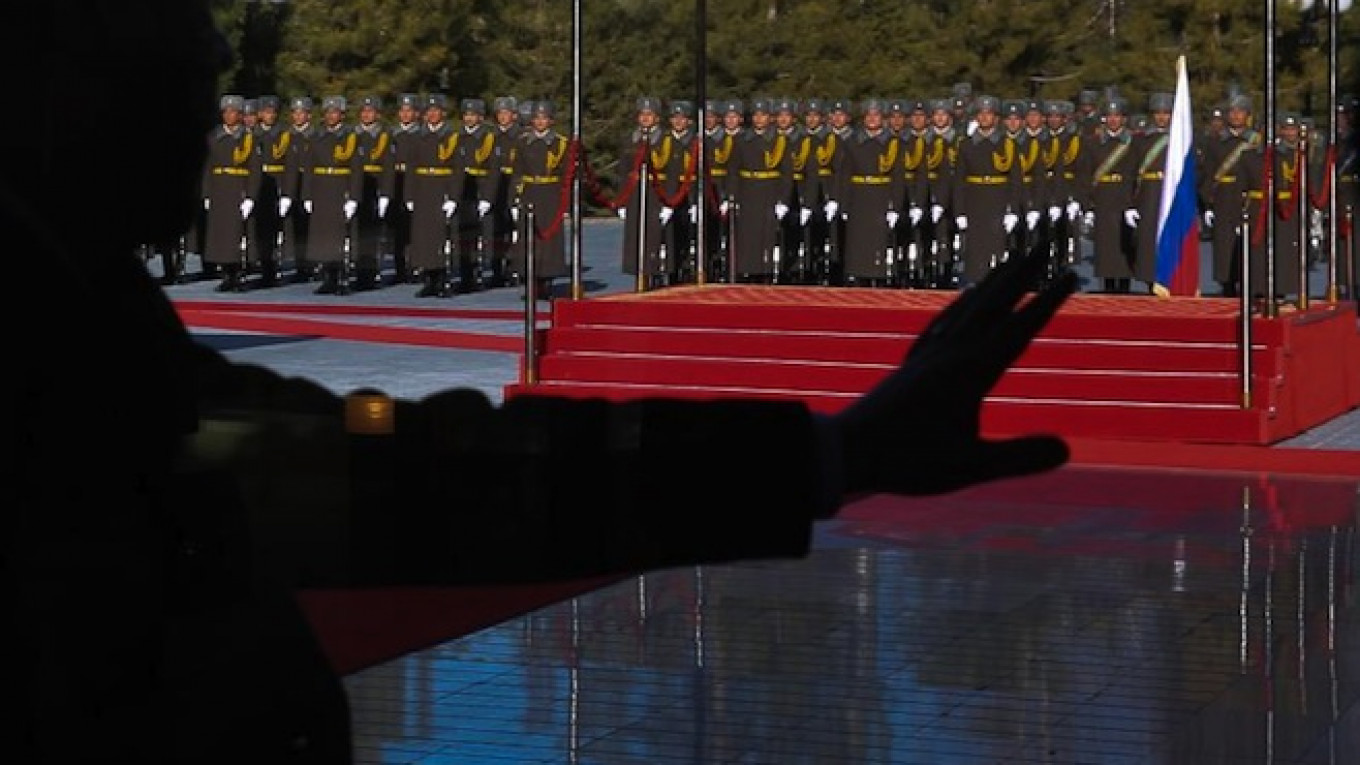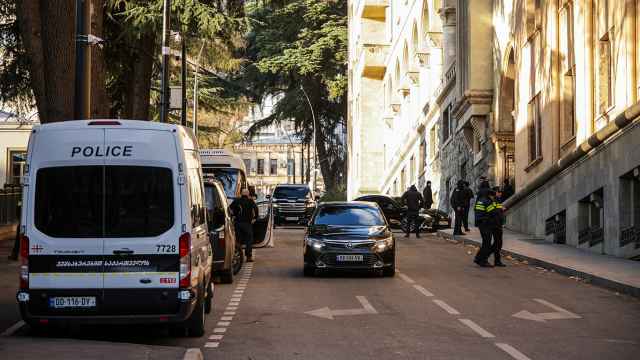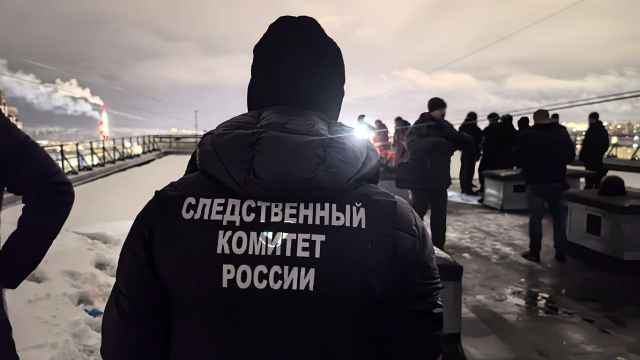SOLOTI — Russia has started to build a huge military base housing ammunition depots and barracks for several thousand soldiers near the Ukrainian border, a project that suggests the Kremlin is digging in for a prolonged standoff with Kiev.
The base, when completed, will even have its own swimming pool, skating rink and barber shop, according to public documents. This week workmen were erecting a fence in a cornfield outside the village of Soloti to mark out the perimeter, and told a Reuters reporter to leave, accusing him of being a Ukrainian spy.
In almost the same spot there was a flurry of military activity in April last year that coincided with intense fighting across the Ukrainian frontier that lies about 25 kilometers (15 miles) away. A squadron of Mi-24 attack helicopters was seen there at the time, as well as army tents and trucks.
NATO has accused Russia of using makeshift bases for sending soldiers and hardware into Ukraine to support pro-Russian separatists fighting Kiev.
Russia denies its military is in Ukraine. The Defense Ministry did not reply to written questions from Reuters about the purpose of the base it is building and whether there was any connection to the Ukraine conflict.
According to tender documents published on the Russian government website zakupki.gov.ru, the ministry is building the military base on a 300-hectare site near Valuyki, a small town not far from Soloti.
The ministry intends to build nine barracks for 3,500 soldiers, warehouses for rockets, artillery weapons, and other munitions with a total area of over 6,000 square meters.
The documents also stated there would be a large training complex, and an infirmary for 50 beds, which can be expanded in the event of a "massive influx of wounded."
They did not give the exact location of the base, but local residents in Soloti said they believed it would be on their doorstep. "They are building a military town," said Alexander Panchenko, a local resident whose house overlooks farmland where preparatory work is under way for a big construction project.
'Secret Facility'
A Reuters reporter saw workers at the site on Monday installing a metal fence and paving the road to the construction site, in a large cornfield near the village. There were also several construction trailers, an excavator and heaps of rubble behind the fence.
A man in Soloti, who called himself a representative of the Federal Agency for Special Construction — which overseas construction of defense installations — refused to talk about the work, saying only that "a secret facility" was being built.
A builder at the site accused the reporter of being a Ukrainian spy, while his superior stopped the reporter's car, photographed his documents and said he would call the Federal Security Service, the main counter-intelligence agency.
The field where the work was under way is near a railway line that links Soloti with Moscow and Luhansk, the adjacent Ukrainian region that is controlled by pro-Moscow separatists.
Russia has pulled out of the treaty on Conventional Forces in Europe, a post-Cold War pact that limits the deployment of troops in Europe, so it is free to move extra troops and hardware to its Western border.
According to the procurement documents, the Defense Ministry plans to use the base to train soldiers on artillery and army air defense, as well as in driving tanks and armored personnel carriers.
The plan includes a site for studying the tactics of the U.S. Army, which was called a "likely enemy" in the document.
On top of that, the base will include a headquarters with a communications node, a dining room for 2,000 soldiers, a recreation center with a skating rink, sports complexes with a swimming pool, tennis and badminton courts, and a residential complex of more than 1,000 apartments.
The document, seen by Reuters, requires the completion of the first stage — the base design and initial construction and installation works — by April 29, 2016.
Fighting between Ukrainian government forces and the separatists in Ukraine's eastern Donetsk and Luhansk regions has killed almost 8,000 people since it broke out in mid-April 2014.
The violence has almost subsided since Sept. 1 when the Ukrainian parliament backed giving more autonomy to rebel-held areas, in line with a peace deal.
However, the truce is under threat because the sides have not fully agreed on the withdrawal of weapons from the conflict area, and the separatists are preparing local elections without coordination with Kiev.
A Message from The Moscow Times:
Dear readers,
We are facing unprecedented challenges. Russia's Prosecutor General's Office has designated The Moscow Times as an "undesirable" organization, criminalizing our work and putting our staff at risk of prosecution. This follows our earlier unjust labeling as a "foreign agent."
These actions are direct attempts to silence independent journalism in Russia. The authorities claim our work "discredits the decisions of the Russian leadership." We see things differently: we strive to provide accurate, unbiased reporting on Russia.
We, the journalists of The Moscow Times, refuse to be silenced. But to continue our work, we need your help.
Your support, no matter how small, makes a world of difference. If you can, please support us monthly starting from just $2. It's quick to set up, and every contribution makes a significant impact.
By supporting The Moscow Times, you're defending open, independent journalism in the face of repression. Thank you for standing with us.
Remind me later.






